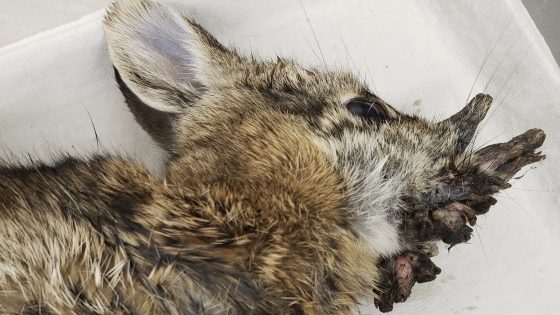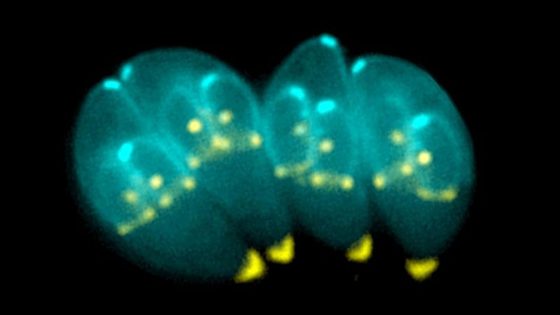Recent sightings of rabbits in Colorado infected with the Shope papillomavirus have sparked curiosity and concern among residents. These rabbits, often dubbed “Frankenstein bunnies,” exhibit unusual, horn-like growths on their faces, leading many to wonder about the implications for health and wildlife.
- Eastern cottontail rabbits infected with virus.
- Shope papillomavirus causes wart-like growths.
- Nicknames include "Frankenstein bunnies" and "zombie rabbits."
- Virus linked to ancient jackalope folklore.
- Infected rabbits pose no threat to humans.
- Growths typically harmless unless obstructing vision.
On August 14, 2025, reports emerged from Fort Collins, where these cottontails were spotted. While the appearance may be alarming, experts assure that the Shope papillomavirus is mostly harmless, primarily affecting rabbits. Understanding this virus is crucial for wildlife enthusiasts and pet owners alike.
What should you know about the Shope papillomavirus? While it can lead to wart-like growths, these do not typically harm the rabbits unless they obstruct vital functions. This raises questions about wildlife health and public perception. Consider these recommendations:
- Monitor local wildlife for unusual appearances.
- Educate others about the benign nature of the virus.
- Report sightings to local wildlife agencies.
As we continue to learn about wildlife diseases, staying informed can empower communities to coexist with nature safely. Keep an eye out for updates on this intriguing health topic.
















![[Adobe Stock]](https://news.faharas.net/wp-content/uploads/2025/07/Ketogenic-Diet-Boosts-Brain-Blood-Flow-by-22-and-BDNF-230x129.jpg)
















